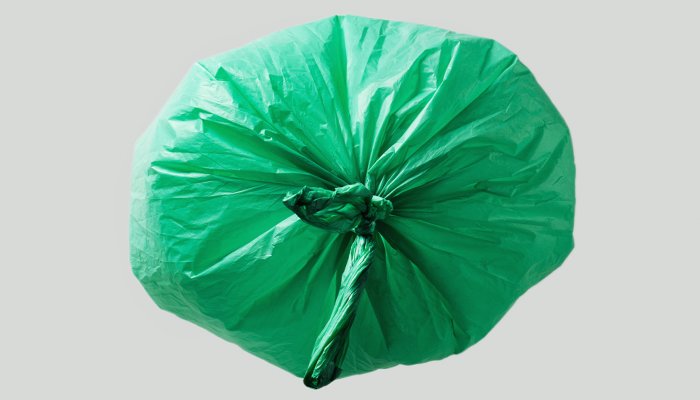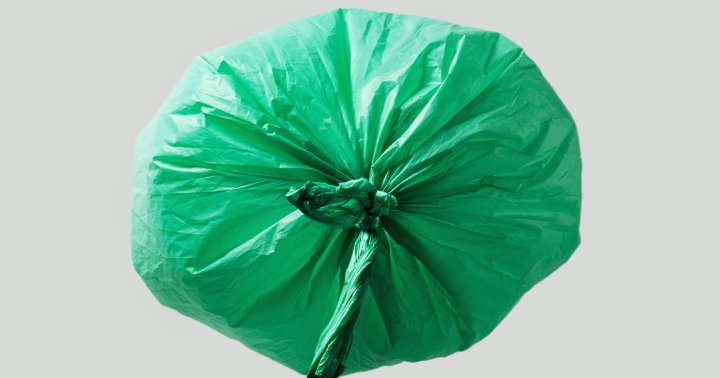A Normal Trash Bag Takes 100s Of Years To Break Down: This Alternative Doesn’t

The typical trash bag is made of strong, stretchy polyethylene—the world’s most widely used type of plastic. Often derived from petroleum or natural gas, these bags linger in the environment for hundreds of years, if not longer. “Compostable” and “biodegradable” bags are often marketed as eco-friendly alternatives.
While those two terms may sound interchangeable, they’re not exactly the same. If a bag is biodegradable, it means that when left in a totally natural environment, over time it will eventually start to degrade with the help of biological helpers like bacteria or fungi.
While certainly a nice idea on paper, the term doesn’t say anything about how long this process takes to happen, so it’s a bit vague and leaves room to be abused or misused as greenwashing.
If a bag is compostable, it means that it will break down in a very specific set of controlled conditions within a certain amount of time, without leaving any toxic residue in the environment. While this term can also be misused, it’s more strictly regulated.
Compostable bags are usually made from plants like corn or potatoes instead of petroleum. If a bag is certified compostable by the Biodegradable Products Institute (BPI) in the U.S., that means at least 90% of its plant-based material completely breaks down within 84 days in an industrial compost facility.
“All products certified by BPI are tested in independent, accredited testing labs,” a company representative tells mbg. “Those test results are then evaluated by a third-party technical reviewer.” Nearly 12,000 products are now third-party certified by the BPI and carry its signature leaf-and-tree seal.
If you’re looking for a trash bag that can quickly return to the earth after you’re done with it, that’s the seal to look for.
This article was originally published by mindbodygreen.com. Read the original article here.



